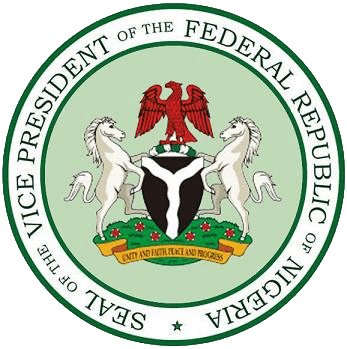
10 roles of the Vice President in Nigeria
The Vice President in Nigeria is the President’s immediate subordinate. When the President is unable to carry out their duties, the Vice President steps in to serve as Acting President. The Vice President is tasked with aiding the President in running the government. The Vice President is required to participate in and attend meetings of the Executive Council as a member of the Council as well. The Vice President may also be given particular tasks and obligations by the President.InformationGuideNigeria
Read Also: 10 Role of Accountants in the Nigerian Economy
👉 Relocate to Canada Today!
Live, Study and Work in Canada. No Payment is Required! Hurry Now click here to Apply >> Immigrate to CanadaWho is a Vice President?
A vice president is the person who is chosen or selected to serve as the president’s deputy in a nation or organization. The Vice President is responsible for supporting the President in the conduct of the executive branch of government in Nigeria. The Vice President is elected with the President as part of a Presidential ticket. In several other nations, the vice president is chosen by the president or head of state and frequently represents the president in some formal functions.
Read Also: 10 Role of Vocational Education in Reducing Unemployment in Nigeria
Yemi Osibanjo:
Yemi Osinbajo is a lawyer and politician from Nigeria who has been the country’s vice president since 2015. In Nigeria’s Abeokuta, he was born on March 8, 1957. He served as Lagos State’s commissioner for justice and attorney general before becoming vice president. Lagos is the financial center of Nigeria. In addition to teaching law, he has experience as a Senior Advocate of Nigeria, which is similar to a Queen’s Counsel in the UK.105 Good Morning Love Messages
In addition to serving as vice president, Osinbajo also serves as the head of Nigeria’s national economic council. On the platform of the All Progressive Congress, he was re-elected vice president in 2019. (APC).
Yemi Osinbajo has participated in a number of projects and activities aimed at enhancing the lives of Nigerians while serving as President Muhammadu Buhari’s Vice President of Nigeria. His significant accomplishments include:10 roles of the Vice President in Nigeria
- The introduction of the “Social Investment Program,” which comprises the “N-Power” program, which offers work opportunities and training to young Nigerians, and “TraderMoni,” which offers microloans to small-time retailers and craftsmen.
- The “Voluntary Asset and Income Declaration Scheme” (VAIDS), whose goal is to persuade taxpayers to voluntarily reveal and regularize their tax status.
- The launch of the “Home Grown School Feeding Program,” which offers elementary school students free school meals to enhance their nutrition and promote attendance.
- The introduction of the “Government Enterprise and Empowerment Program (GEEP),” which offers grants and loans to small farmers, craftsmen, and market women.
- The “Survivable Income Policy Implementations” which attempts to lessen poverty and inequality in Nigeria.
- The beginning of the “Conditional Cash Transfer” (CCT) program, which attempts to aid Nigeria’s most vulnerable and impoverished households.20 Best University In Nigeria For Masters Degree
- The introduction of Nigeria’s “N-Agro” assistance program for smallholder farmers.
These are just a handful of the projects and activities Vice President Osinbajo has worked on during his time in office.
Read Also: The Roles of Public Administration in Nigeria
Limitations of the Vice President:
There are a number of restrictions on the vice president of Nigeria’s authority and duties. These consist of:
👉 Relocate to Canada Today!
Live, Study and Work in Canada. No Payment is Required! Hurry Now click here to Apply >> Immigrate to Canada- The Vice President lacks the authority to make policy choices or take part in the day-to-day operations of the government because he is not a member of the Federal Executive Council (FEC).
- Legislation cannot be vetoed or public officials appointed by the vice president.NYSC Portal
- The Vice President has no independent power base or political backing, and their job is mostly ceremonial.
- The Vice President assumes the role of Acting President in the case of the President’s demise, impeachment, or removal from office, but the National Assembly retains the right to override the Vice President.
- Since the President has the authority to choose Ministers but not to dissolve the National Assembly, the Vice President has no constitutional authority to participate in the formation of the administration.
- No reprieves or pardons may be issued by the Vice President.200 Romantic Love Message
It’s important to remember that the Vice President’s powers are constrained by the political environment and the style of leadership of the President himself.
Summarily, the vice president of Nigeria serves mostly in a ceremonial capacity and has limited governmental authority. They act as the President’s second-in-command and may be requested to carry out ceremonial tasks or to assume the President’s responsibilities in the case of the latter’s incapacity.200 Romantic Love Message
When the Senate is in session, they also serve as president. However, they lack the authority to enact legislation or exercise executive authority apart from the President. In addition, the Vice President lacks the authority to nominate government officials and is not a member of the Cabinet.
Read Also: Role of English in Nigeria
Roles of the Vice President in Nigeria:
- The Vice President of Nigeria presides over the Senate, and in the event that the President is not present, they take over the duties of the President.
- The Vice President serves as the President’s assistant, offering guidance and assistance on a range of matters.
- The Vice President represents the President in functions and ceremonies that take place both domestically and abroad.
- Government activity coordination: The Vice President is in charge of coordinating government operations to make sure they adhere to the President’s objectives.
- Providing a link between the President and other nations: The Vice President represents Nigeria in diplomatic discussions and meetings as a representative of Nigeria.
- The Vice President is in charge of overseeing government programs and projects to make sure they are finished on schedule and within budget.JAMB Portal
- The Vice President represents the President on a variety of committees, such as those that deal with security, economic growth, and governance.
- Giving the President appointment advice: The Vice President gives the President appointment advice, including guidance on choosing Cabinet members and other senior leaders.
- Assisting in conflict resolution and preserving political stability is the Vice President’s role as a mediator between the President and other political leaders.50 Best University In Nigeria To Study Law
- Assisting the president in formulating policies: The vice president supports the president in formulating policies by offering feedback and insight on a range of problems.
Read Also: What Are The Roles Of SON In Nigeria
Conclusion:
As a crucial counselor and the President’s representative, the Vice President of Nigeria plays a significant role in the administration. They preside over the Senate, assist the President, represent the President at functions and ceremonies, coordinate government initiatives, serve as the President’s point of contact with other nations, monitor government projects, represent the President on committees, give the President advice on appointments, serve as a mediator, and help the President develop policies. The Vice President is an essential member of the Nigerian executive branch and is vital to the President’s success and the smooth operation of the government.
Check JAMB Result
Check and Confirm: How much is Dollar to Naira
